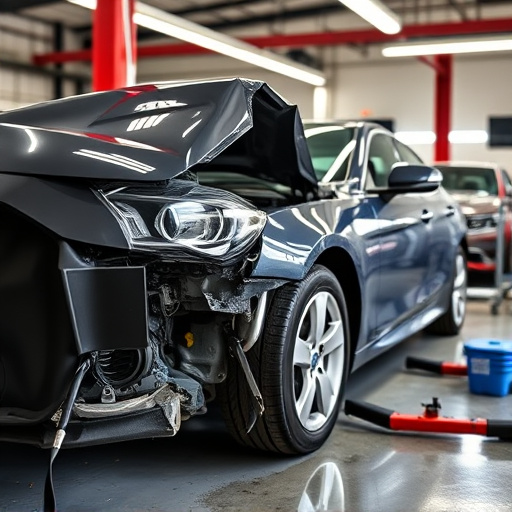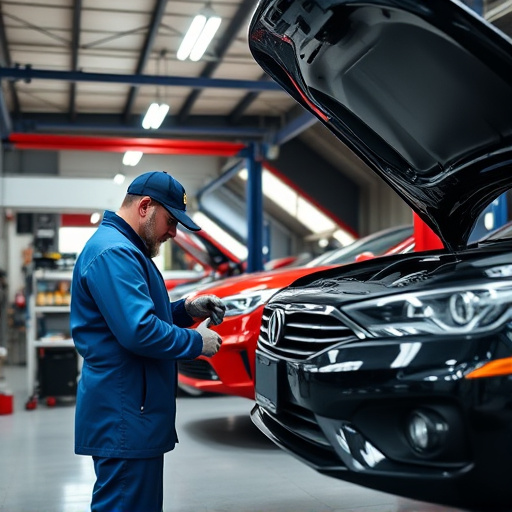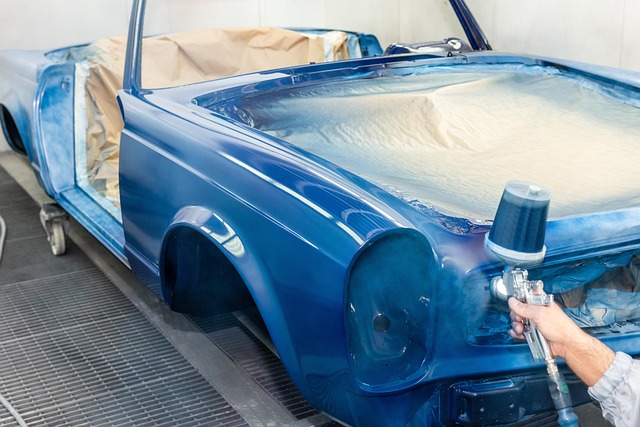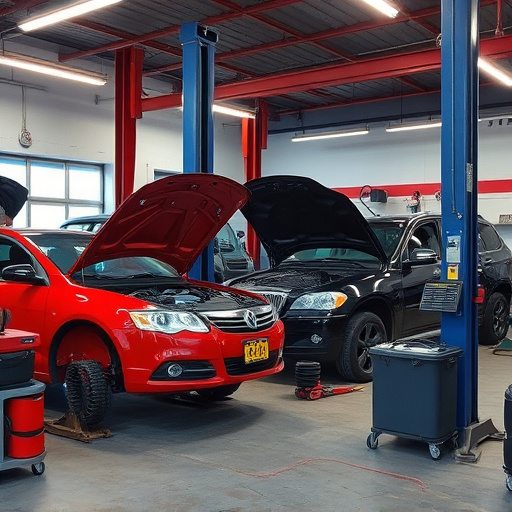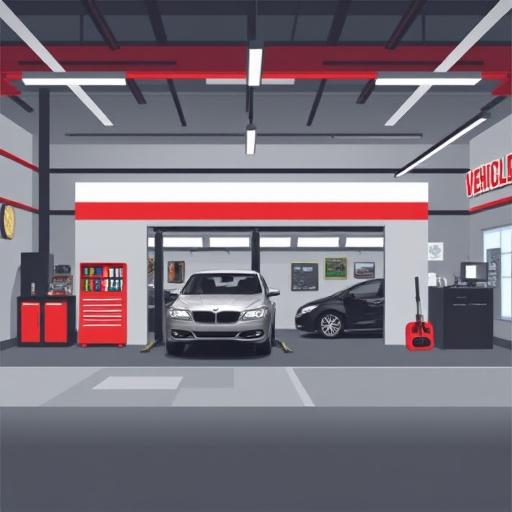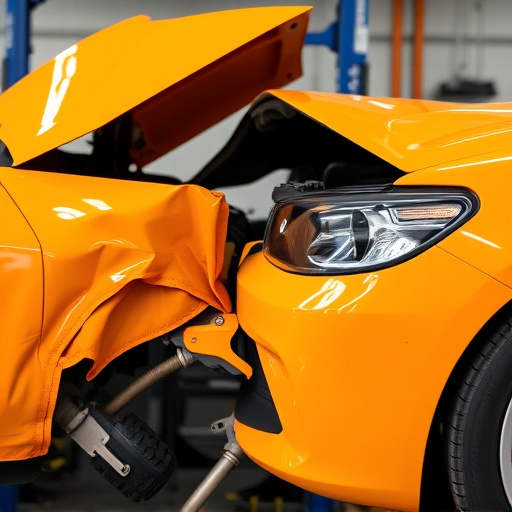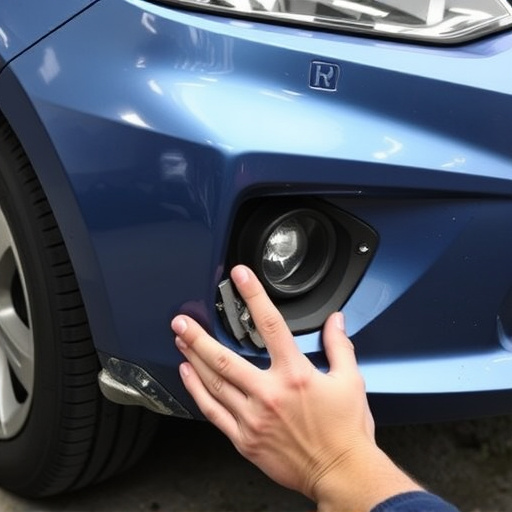Aluminum body components have revolutionized the automotive industry by enhancing fuel efficiency and addressing environmental concerns. By replacing steel bodies, aluminum alloys significantly reduce vehicle weight, leading to improved gas mileage and lower emissions. This trend is particularly prominent in modern cars aiming to meet stringent regulatory standards. In luxury vehicle repair, specialized aluminum body restoration ensures both structural integrity and aesthetic appeal for these eco-friendly transportation solutions, while also facilitating innovative design, enhanced safety features, and resistance to corrosion.
Aluminum body components are revolutionizing modern cars, offering a lightweight yet durable solution that enhances performance and safety without compromising style. This article explores why these components are essential, highlighting their role in improving fuel efficiency through reduced vehicle weight, while also strengthening structural integrity for enhanced crashworthiness. We’ll delve into the design flexibility and cost-effectiveness of aluminum, demonstrating its versatility and growing availability in various car parts. Discover how this metal is paving the way for more efficient, safer, and stylish vehicles.
- Lightweight and Fuel Efficiency
- – The role of aluminum in reducing vehicle weight
- – Improved fuel economy and environmental benefits
Lightweight and Fuel Efficiency
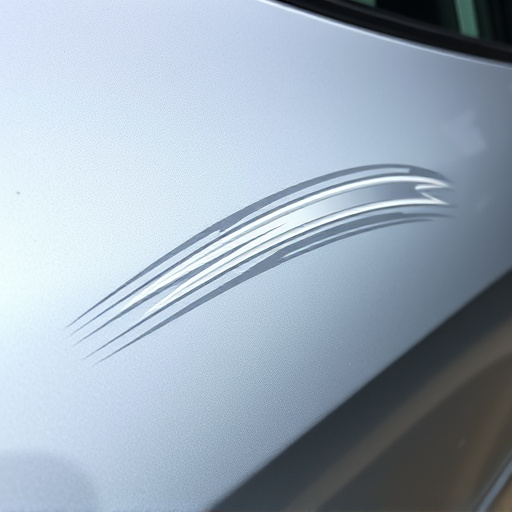
Aluminum body components have revolutionized the automotive industry by offering an unparalleled combination of lightweight construction and fuel efficiency. In today’s market, where environmental concerns are at the forefront, this metal is playing a pivotal role in shaping the future of sustainable transportation. By replacing traditional steel bodies, aluminum alloys can reduce vehicle weight significantly, leading to improved gas mileage and lower emissions. This is particularly beneficial for modern cars, which require efficient powertrains to meet stringent regulatory standards.
The use of aluminum in automotive manufacturing allows for the creation of lighter, stronger structures, enabling car manufacturers to design more fuel-efficient models without compromising on performance or safety. In terms of body shop services and luxury vehicle repair, aluminum body restoration is a specialized skill that ensures these vehicles maintain their structural integrity and aesthetic appeal over time, catering to the growing demand for high-quality, eco-friendly transportation solutions.
– The role of aluminum in reducing vehicle weight

Aluminum plays a pivotal role in modern automobiles, primarily as a lightweight material for body components. The traditional steel bodies have been replaced, to an extent, by aluminum ones due to its exceptional properties. One of the most significant advantages is its ability to reduce vehicle weight significantly without compromising structural integrity. This is crucial in today’s market where fuel efficiency and performance are top priorities. By incorporating aluminum body components, car manufacturers can create lighter vehicles that offer improved acceleration, better handling, and extended range on a single tank of gas.
The use of aluminum also facilitates innovative vehicle design and enhanced safety features. Its formability allows for more intricate and aerodynamic shapes, contributing to the overall aesthetic appeal and reduced drag coefficients. Moreover, aluminum’s resistance to corrosion, when properly treated, ensures that these components remain robust and reliable over time, requiring less frequent auto repair services. This is especially beneficial in regions with diverse climates where vehicles are exposed to various environmental conditions, including moisture and salt, which can impact luxury vehicle repairs if not managed correctly.
– Improved fuel economy and environmental benefits
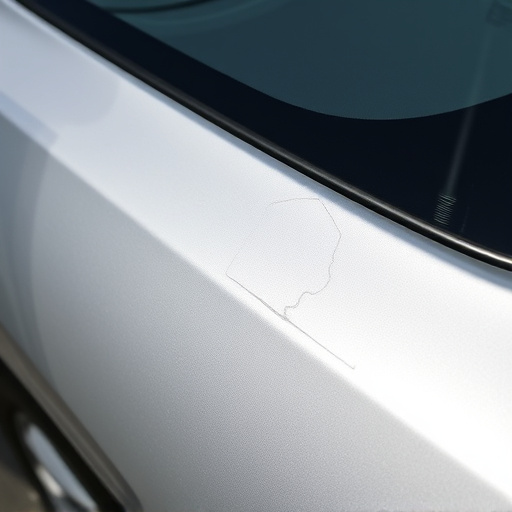
Aluminum body components play a pivotal role in enhancing the fuel efficiency and environmental footprint of modern vehicles. One of the key advantages is their significant contribution to improved fuel economy. Unlike traditional steel bodies, aluminum is lighter in weight, which reduces overall vehicle mass. This weight reduction directly translates into lower fuel consumption, as less energy is required to propel the car. In today’s market, where consumers and governments alike are increasingly conscious of environmental impact, this advantage is profound.
The use of aluminum also has positive implications for the automotive industry’s sustainability. Aluminum is a highly recyclable material, which means that old cars and their parts can be reused, reducing waste and the demand for new resources. Moreover, the manufacturing process for aluminum body components typically generates fewer emissions compared to steel production, further contributing to a greener automotive ecosystem. This not only benefits the environment but also streamlines the vehicle dent repair and car paint services processes in automotive body shops, making them more efficient and cost-effective.
Aluminum body components have become indispensable in modern car manufacturing. Their lightweight nature significantly reduces vehicle weight, leading to improved fuel efficiency and lower carbon emissions. This not only benefits the environment but also enhances performance and drives sustainability forward. As the automotive industry continues to evolve, aluminum will undoubtedly remain a key player in shaping the future of transportation.


